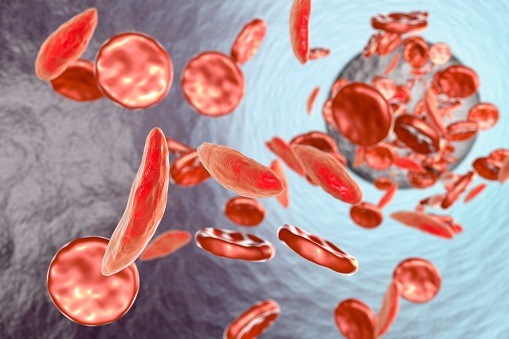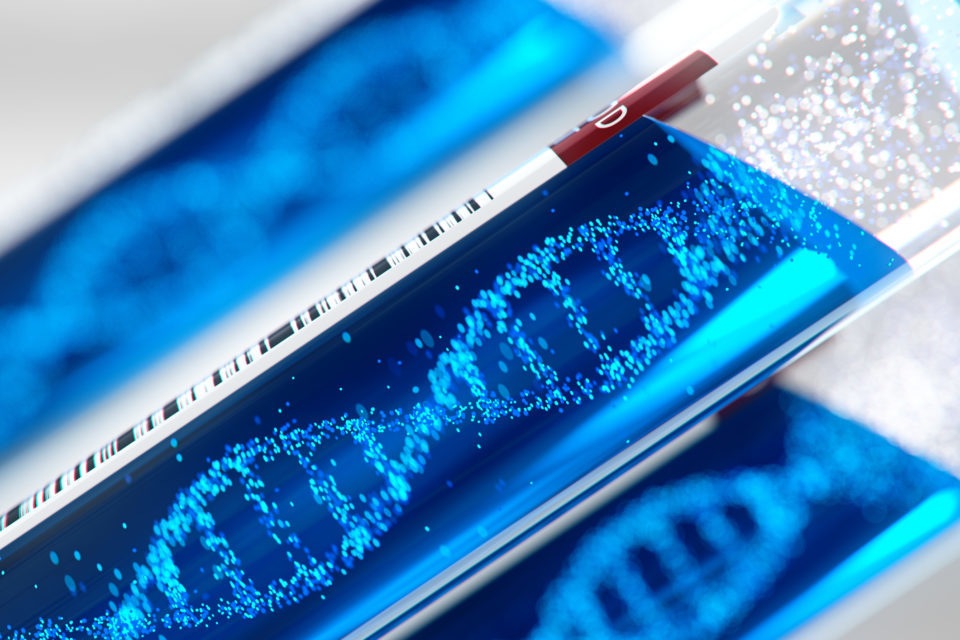
Research presented at the 24th Congress of the European Hematology Association (EHA) found that potent inhibitors of NADK (NAD Kinase) could potentially enhance the treatment of T-cell acute lymphoblastic leukemia (T-ALL) while reducing side-effects as well. These findings were presented by Dr. Etienne De Braekeleer at the conference on June 15, and were published in the journal Blood.
Presenting in roughly one out of every 2,000 children by the age of 15, ALL is the most common pediatric cancer. Current combination chemotherapies have significantly improved patient outcomes, but these treatments are toxic and come with long-term health consequences. In addition, the overall incidence of ALL has been increasing over the past 30 years.
T-cell ALL (T-ALL) represents 15-25% of all ALL’s, affecting both children and adults. Over 60% of T-ALL cases present activating mutations in the NOTCH1 gene. Therapies such as γ-secretase inhibitors and Notch inhibiting antibodies have been created to target these mutations but are yet to become widely accepted.
In this work presented at the EHA Congress, the researchers leveraged CRISPR-Cas9 technology to screen T-ALL cell lines with NOTCH1 overexpression or mutation, and in a cell line that is not dependent on NOTCH1. By comparing genes in these cell lines, the scientists identified 69 genes specific to NOTCH and a separate group of genes involved in reduction of reactive oxygen species (ROS).
NADK, the gene for nicotinamide adenine dinucleotide kinase, was the ROS-reducing gene they chose to focus on. This kinase is responsible for phosphorylating NAD+, forming NADP+ in the process. Once NADP+ is reduced to form NADPH, it can then reduce ROS levels by creating reduced Glutathione. The researchers found that the NOTCH1-driven T-ALL cells create large quantities of ROS, and that NOTCH1 signals NADK to protect the cells from these ROS, allowing proliferation and cancer growth.
It was found that pharmaceutical or genetic inhibition of NADK resulted in increased ROS levels in NOTCH1-driven cells, which was associated with significant decreases in cell proliferation as expected. This research was done in vivo using patient-derived T-ALL cells within immunocompromised mice.
The authors note that previous work has found the intracellular domain of NOTCH1 to suppress production of ROS in both mouse and human T-ALL cell models, enhancing the proliferation of these cancer cells. They propose that this NOTCH effect is mediated by NADK, meaning that targeting NADK could be effective in treating NOTCH1-driven T-ALL cells and other NOTCH associated cancers.
New post (EHA 2019: Burning out the T-ALL engine: NADK is a new therapeutic target in T-cell Acute Lymphoblastic Leukaemia) has been published on Oncology News Australia – https://t.co/w80w53QtuL pic.twitter.com/1G0EKA1pJX
— Oncology Network (@OncologyNetwork) June 19, 2019







 © 2025 Mashup Media, LLC, a Formedics Property. All Rights Reserved.
© 2025 Mashup Media, LLC, a Formedics Property. All Rights Reserved.